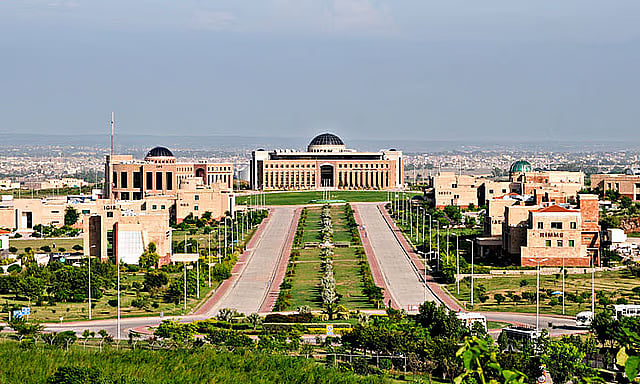Times Higher Education Rankings 2026: 48 Pakistani universities make global list
QAU leads country in the 401–500 band, while others enter the 601–1000 range

Dubai: Pakistan has shown marked improvement in the Times Higher Education (THE) World University Rankings 2026, with nearly 50 institutions making it to the global list.
According to the latest rankings released by THE, 48 universities from Pakistan were ranked, while several others earned “Reporter” status — institutions that submitted data but did not meet full eligibility criteria for ranking.
Quaid-i-Azam University (QAU) led the country in the 401–500 band, followed by Air University, COMSATS University Islamabad, and NUST in the 601–800 range. Other notable performers include LUMS, Punjab University, and UET Taxila, all ranked in the 801–1000 band, indicating room for further growth in international competitiveness.
Abu Dhabi University ranks third nationally in Times Higher Education World University Rankings 2023
This year’s rankings assessed 2,191 universities across 115 countries, underscoring the highly competitive nature of the global higher education landscape.
Top Pakistani universities by ranking band
401–500: Quaid-i-Azam University, Islamabad
601–800: Bahauddin Zakariya University, Air University, COMSATS University Islamabad, Government College University Faisalabad, NUST, Sukkur IBA, University of Lahore, University of Veterinary and Animal Sciences, Lahore
801–1000: LUMS, Punjab University, UET Taxila, Government College University Lahore, GIK Institute, IIUI, Iqra University, Islamia University Bahawalpur, UMT, University of Central Punjab, University of Gujrat, University of Malakand, and others
1001–1200: Bahria University, Hazara University, Institute of Space Technology, PMAS Arid Agriculture University, Riphah International University, UET Peshawar, University of Education, and University of Okara
1201–1500 and beyond: Eight others featured in the lower bands
Globally, Oxford University retained the top position for the 10th consecutive year, followed by Stanford and Princeton, which rose to joint third. China placed five universities in the top 40, while India recorded its best performance ever — now ranking second globally in the number of universities featured, behind only the United States.
About Times Higher Education (THE) World University Rankings
Established: First published in 2004 by Times Higher Education, a UK-based magazine focusing on global academia.
Scope: Recognised as one of the world’s most authoritative university ranking systems, alongside QS and Shanghai ARWU rankings.
Reach: Covers 2,000+ universities from 115+ countries, making it the largest global comparison of higher education institutions.
Core Pillars: Evaluates universities on 18 indicators across four main areas:
Teaching (the learning environment)
Research (volume, income, and reputation)
Knowledge transfer (industry income and innovation)
International outlook (staff, students, and collaboration)
Methodology: Data collected from millions of research papers and global surveys of academics; validated independently to ensure transparency.
Impact: Used by students, academics, university leaders, and policymakers worldwide to assess performance and guide decisions.
Note: A study abroad metric is being developed but currently carries zero weight; it may be included in future editions.
Bahauddin Zakariya University (BZU) Vice Chancellor Prof Dr Zubair Iqbal credited faculty and staff for the institution’s 400-point leap to the 601–800 bracket, saying:
“The improvement reflects collective efforts to enhance research quality and attract new projects. We’ve provided strong incentives to our faculty to pursue impactful research.”
Sign up for the Daily Briefing
Get the latest news and updates straight to your inbox
Network Links
GN StoreDownload our app
© Al Nisr Publishing LLC 2026. All rights reserved.
